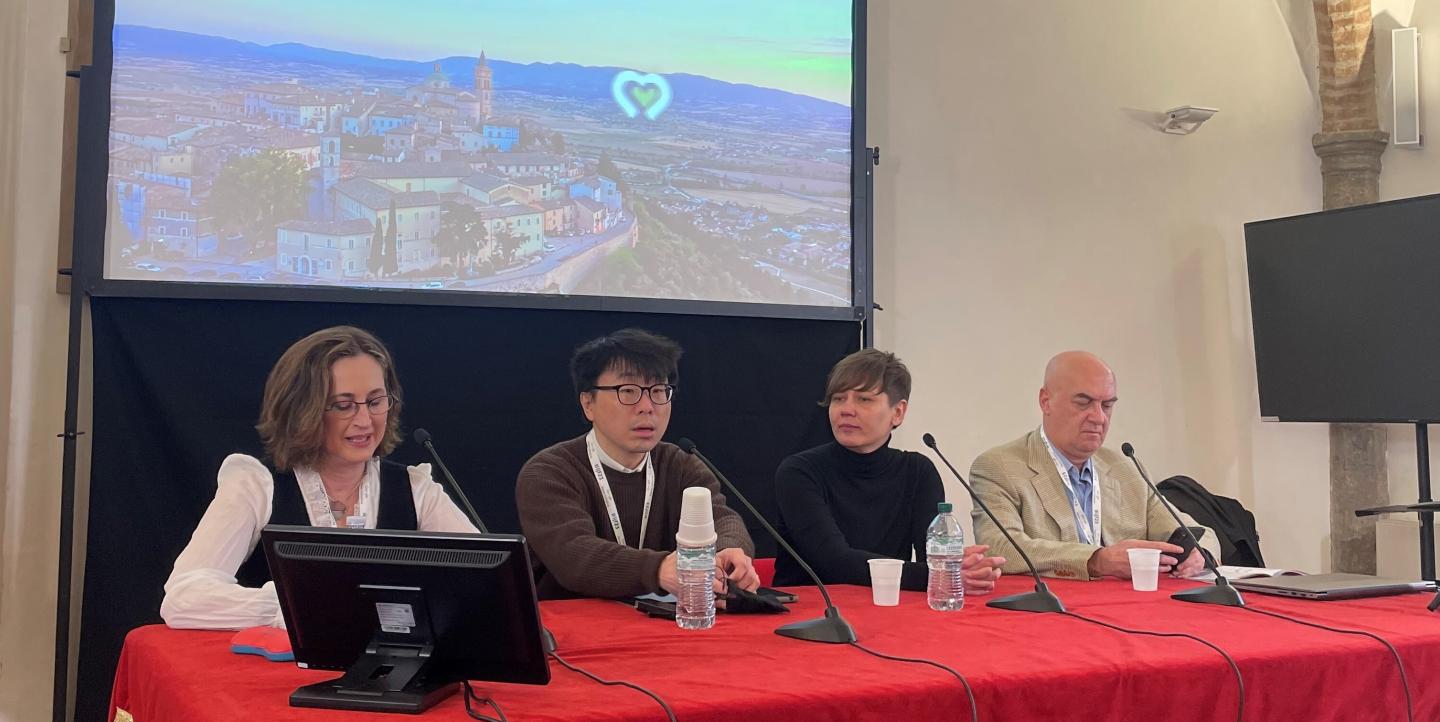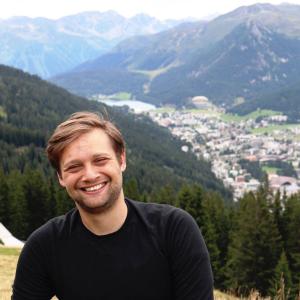Independent media is in the crosshairs as authoritarianism takes firmer root globally. From Turkey to Russia, China to El Salvador, more and more journalists and newsrooms are relocating abroad to freely report on their home countries, as a result.
Hybrid media – outlets run by reporters in exile in collaboration with local journalists still in country – are “a phenomenon that is growing,” said ICFJ President Sharon Moshavi during a panel she moderated at the International Journalism Festival in Perugia, Italy.
The journalists working for these newsrooms must navigate significant risk to their safety, lack of funding, and difficulty reaching audiences back home.
Joining Moshavi to discuss the growth of hybrid media and the challenges they face were Yavuz Baydar, editor of Free Turkish Press, which covers the increasingly autocratic government of President Recep Tayyip Erdogan in Turkey; Sveta Dyndykina, co-founder of ROMB, which delivers independent news to Russian audiences amid high levels of censorship and propaganda; and Tinshui Yeung, a former ICFJ Knight Innovation Fellow who researches how new technologies can help journalists around the globe, including his native Hong Kong, operate more securely.
Here are some key takeaways from the session.
Safety and security
Russian hybrid media outlets rely on freelance journalists still in the country to cover anti-war protests and other developments that the government considers politically dangerous, explained Dyndykina.
These reporters typically lack the safety training and support that many full-time staff journalists receive. “The biggest challenge is to ensure security for freelance journalists,” she said. “Those who stay [in Russia] are extremely brave, but need institutional support.”
Hybrid media outlets’ independent reporting also places their journalists in exile at risk of violence from pro-regime supporters in the countries to which they’ve relocated. Baydar recalled one Turkish journalist in Berlin and two others in Sweden who were attacked, including one who was beaten into a coma in Stockholm. “They feel this hatred all the time, my colleagues,” Baydar said.
These same journalists who have relocated abroad might be detained if they return to their home countries. Their families and friends, especially those who have remained behind, are also at risk.
“Danger is everywhere. Being overseas doesn’t mean you’re automatically safe,” Yeung said. “Everyone has contacts in authoritarian environments.”
Lack of funding
Financing hybrid media outlets is another challenge. Some funders, said Baydar, are reluctant to support media that is critical of authoritarian governments.
“Over time, there's been a reluctance [from funders] to challenge the regime in Turkey,” he said. This is borne out of fears that the state censorship and propaganda is “too thick” for independent reporting to penetrate.
Compounding the lack of funding, the freer media environments to which newsrooms under fire tend to relocate often exist in countries where the cost of living is higher, such as in Western Europe.
Reaching audiences
Hybrid media and authoritarian regimes are at constant odds. As the former tries its best to reach and connect with audiences, the latter takes steps to restrict access to independent media.
In Turkey, noted Baydar, the government is banning an increasing number of websites. Free Turkish Press readers have used VPNs to access the site when it has been banned – but this isn’t possible in every country. Few people have access to VPNs in Russia for instance, said Dyndykina. Instead, they rely on social media, especially Youtube, to access independent media.
Noticing how hybrid newsrooms use social media to reach audiences, governments have attempted to censor accordingly. Russia has already banned Twitter and Instagram, and Youtube might soon follow. “If [governments] block Youtube, it’s one platform less for independent media to reach audiences,” Dyndykina said.
Even in authoritarian environments where social media is not fully banned, such as in Hong Kong, readers tend to avoid sharing news on the platforms that might be deemed politically sensitive by the government for fear of being detained, Yeung said.
Many of these stories are instead shared on private messaging apps, such as WhatsApp and Telegram. However, given how social media algorithms tend to reward an active presence when pushing content onto a user’s feed, the private sharing further negatively impacts an outlet’s ability to reach audiences.
Attracting talent
Given the security risks and relative lack of stability, finding journalists to work in hybrid media is yet one more major hurdle. Attracting in-country reporters is especially difficult.
“When you work for hybrid media, your career is less secure,” Yeung said. “It makes it very difficult to convince people to work long-term, [and] really difficult to get journalists to really dedicate their career to hybrid media.”
ROMB works with journalists and media outlets in Russia, explained Dyndykina: among the arrangements, her newsroom has “informal agreements” with several local outlets to republish each other’s reporting. In this way, the local outlets can gain international exposure and ROMB’s stories can better reach Russian audiences.
There are risks with this process, however. Today, many local journalists in Russia straddle the line between activist and journalist, which can lead to government targeting and arrests. In one case, a local journalist documenting an anti-war protest for ROMB joined the protest after taking the footage, and was later arrested, according to Dyndykina.
The question for many journalists is: “Who am I? Am I a journalist in the first place, or am I a citizen?” said Dyndykina. “This is something Russian journalists face every day.”
Finding ways to reduce the fear held by many journalists reporting in authoritarian contexts is key, noted Yeung. Self-censorship is a major problem – not just for journalists still in Hong Kong, but also those abroad who have family or friends who stayed behind.
Yeung encouraged Hong Kong journalists to report on longer, more investigative stories using a pseudonym, instead of openly covering breaking news. Doing so can mitigate the likelihood authorities will identify them as journalists.
No matter the precautions taken, however, there will exist at least some danger that a journalist operating in-country will be detained. This presents an ethical dilemma for newsrooms: how should they balance the inherent security risks with the value of their on-the-ground journalists’ reporting?
“If journalists are detained for their reporting, it means you’ve hit the target, unfortunately,” said Dyndykina.
Main image courtesy of Devin Windelspecht.


